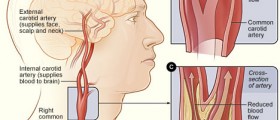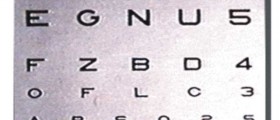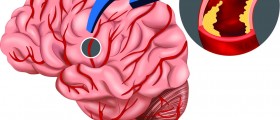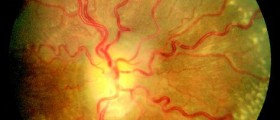
Loss of Vision
Loss of vision affects patients of different age and may result as a consequence of numerous conditions. Some patients complain about blurring, fogging or dimming of the vision while others suffer from prompt and complete loss of vision. In some cases, loss of vision is transitory while in others it can last for a longer period of time. All of these worry patients and they eventually turn to their doctors. Pathophysiology of Loss of Vision
Ischemia is responsible for insufficient supply of tissues with blood. Deficit may be transitory or permanent which basically depends on the level of damage.
Eye ischemia includes transient visual obstruction, amaurosis fugax, and transient monocular vision loss, transient binocular vision loss and ocular infarction. In transient visual obstruction loss of vision occurs due to papilledema and increased intracranial pressure. Amaurosis fugax is a short, partial or total monocular loss of vision which does not last longer than few minutes. Transient monocular loss of vision usually lasts longer than few minutes and transient bilateral loss of vision affects both eyes and has similar characteristics as transient monocular loss of vision. And finally, ocular infarction causes serious and permanent damage to the eye and leads to irreversible loss of vision.
Setting of the Diagnosis
Doctors individualize assessment of patients suffering from transient monocular loss of vision, perform certain laboratory tests such as blood count and coagulation test, and investigate sedimentation rate in patients older than 55 which is helpful in screening for giant cell arteritis.
Noninvasive evaluation of the carotid artery can reveal stenosis. The stenosis may be responsible for transient monocular blindness. Carotid atherosclerotic disease is easily confirmed after angiography has been performed. Furthermore, fluorescein angiography is rather helpful and may detect embolic retinal vascular occlusion.
Additional tests may include noninvasive studies of the heart in order to detect arrhythmias which are potential causes of embolism. Heart arrhythmias can be successfully diagnosed by Holter monitoring. One more test includes biopsy of temporal artery. This test can confirm or rule out giant cell arteriris which may be possible cause of vision loss.
Treatment
Medicamentous therapy of sudden visual loss includes Aspirin. Aspirin can help patients who are not suitable candidates for the surgery. It prevents heart attack and stroke. Additional measures include quitting of smoking which particularly refers to women who are on birth control pills.
Surgical care includes procedures which take care of carotid artery stenosis. Retinal ischemia is successfully treated with carotid endarterectomy. This procedure additionally prevents stroke. Apart from carotid endarterectomy patients may benefit from local arterial fibrinolysis. This treatment is suitable for central retinal artery occlusion.

















Your thoughts on this
Loading...